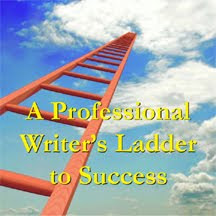
He was reportedly the first American author to sell a
million copies of a novel. Also the first to make
$1 million from fiction writing. During his prime, he outsold every other American author. Six of his books were among
Publisher's Weekly's
top 10 best sellers of their time. At least
21 movies were made from his stories, some featuring major Hollywood stars. One of his books has been credited with beginning the tourism boom that shaped
Branson, Missouri into what it is today. In addition to his 19 novels, he wrote stage plays and numerous magazine articles.
So why have you never heard of
Harold Bell Wright? By pretty much all measurements, he was successful. Some of his books are still for sale on Amazon.com. Ronald Reagan cited Wright's influence on his own life. He even has a website, 67 years after his death, and his work is still popular among many Christian readers. There's even a
Harold Bell Wright Society that was created to publicize the author's work.
One of the reasons for Wright's commercial success during his lifetime was
marketing. His publisher recognized the value of mass
distribution on readership, and made his books available through "new" channels like the Sears & Roebuck catalog. The company also targeted small-town bookstores to get his books in front of people who rarely read the classics. This was an audience to which his messages appealed.
Another reason for Wright's success was the meticulous
research that went into each of his novels. He went so far as to actually spend time living in his locations before writing about them. Wright's background as a preacher also made him a good
storyteller who could describe his locations and situations in ways that made them relevant to his readers. His books usually had a
moral foundation that taught readers lessons about what really matters and valued the simple, country or frontier life over more complex city living.
So why aren't Wright's books still popular today, and why isn't his name mentioned with other great writers of the early 20th Century? Some say it's because his
characters are too simplistic. That makes the plots easier to figure out ahead of time, with few surprises for readers. Literary critics of his time looked down upon Wright's work as shallow, mass-market fiction. There is a tendency among literary scholars to downplay the value of very popular writers who affirm traditional, conservative values. The quality of Wright's work is viewed as
inconsistent, as well.
What lessons does this hold for today's writers? There are a few:
- Know why you're writing. Do you seek commercial success? Literary acclaim? To transform lives, or merely to entertain your readers? What themes do you want to leave them with? Understanding this should be one of the first things you do when you're planning to write a book. It can change the way you write it. It may not have bothered Wright that literary critics dismissed his importance, if his purpose in writing his books was to reach as many people as possible with his message. Perhaps timelessness was not a part of his vision for his work.
- Invest time in good research. Yes, your creative genius and the story you have to tell are important, but make sure the details of your book ring true. If it takes traveling to a place mentioned in your book to make sure you can write about it realistically, do it. If it means hours in the library and online tracking down historical details to ensure accuracy, do it. Wright's investments here helped his readers identify with his stories and created loyal fans who bought everything he wrote.
- Pay attention to marketing. No publisher these days provides much marketing support to authors. It's going to be up to you to make sure your book sells. Write a marketing plan for it, even before you've written the book. Identify your primary target audience. Get to know it thoroughly, and identify your secondary audiences. Scout your competition, and figure out how you're going to differentiate your book from them for each of those audiences. Determine the formats in which you'll offer your book (hardcover, paperback, e-book, audio, etc.) and where it will be sold. These details will become crucial in your book's success. Yesterday's Sears & Roebuck catalog, used so successfully by Wright's publisher to market his books, is today's Amazon.com...what will it be tomorrow?
Writing a book is not simple, even though it seems like everybody these days is doing it. Make sure your investment in time and resources pays off by learning from authors of the past like Harold Bell Wright.
Harold Bell Wright was born on this day in 1872. His most famous novels are The Winning of Barbara Worth (made into a film starring Gary Cooper in 1926), The Shepherd of the Hills (made into a 1941 John Wayne film), The Calling of Dan Matthews, and The Eyes of the World. If you've written a Great American Novel and need someone to edit it, visit the Thompson Writing & Editing site for information on our editing services.









